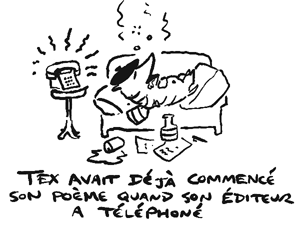
(That dress? She had bought it when she was in Paris. Souligne la forme verbale conjugue au plus-que-parfait de l’indicatif qui convient.
#Finir plus que parfait full
(I had a stomachache because I had eaten too much.) Full conjugation of avoir Indicatif prsent ai as Indicatif pass compos ai eu as eu Indicatif imparfait avais avais Indicatif plus-que-parfait.

What is important is the noun that follows. It doesn’t matter if the subject of the sentence is feminine or masculine. COERLL : Center for Open Educational Resources and Language Learning : LAITS : Department of French and Italian : UNIVERSITY OF TEXAS AT AUSTIN.

Other languages available English French Italian Spanish Portuguese German. View Take (active tab) You are not allowed to take this Quiz. Son is a possessive adjective which can mean either his or her. Conjugate the French verb finir with the auxiliary verb avoir in several modes, tenses, voices, numbers, persons : indicative mode, subjunctive, imperative mood, conditional, participle form, gerund, present, past, future perfect, progressive. The regular verb finir is in the infinitive form because it is being used with the recent past construction: venir de + infinitive. Lesson: Venir de – Recent past with the imperfect To say that something has just happened, use the verb venir in the present tense. The pluperfect tense of -ir verbs like finir (meaning to finish) is formed in the same way, except for the past participle: javais fini, tu avais fini and. The most important thing to remember when choosing the passé récent over the plus-que-parfait is the word just. It’s important not to confuse this grammatical structure with the plus-que-parfait tense, which means that someone had done something.

Retrouver la conjugaison du verbe finir tous les temps : finir. La conjugaison du verbe finir se conjugue avec l'auxiliaire avoir. future, imperfect, conditional, subjunctive, plus-que-parfait and more. Le verbe finir est un verbe du 2me groupe. Finir to finish Past Participle fini Auxiliary Verb avoir Conjugate the verb finir in the plus-que-parfait choisir. The Pluperfect tense conjugations for the French verb finir, along with their. Voici la conjugaison du verbe finir au plus-que-parfait du subjonctif. It means that someone or something had just done something. Conjuguaison du verbe finir au plus-que-parfait du subjonctif.

When referring to something that happened before a moment in the past, venir is conjugated in the imperfect tense. Il is a subject pronoun which means he or it. FRENCH SENTENCE STRUCTURE ACTIVITY He = Il J'avais Tu avais Il avait Nous avions Vous aviez Ils avaient PASS ANTRIEUR.


 0 kommentar(er)
0 kommentar(er)
